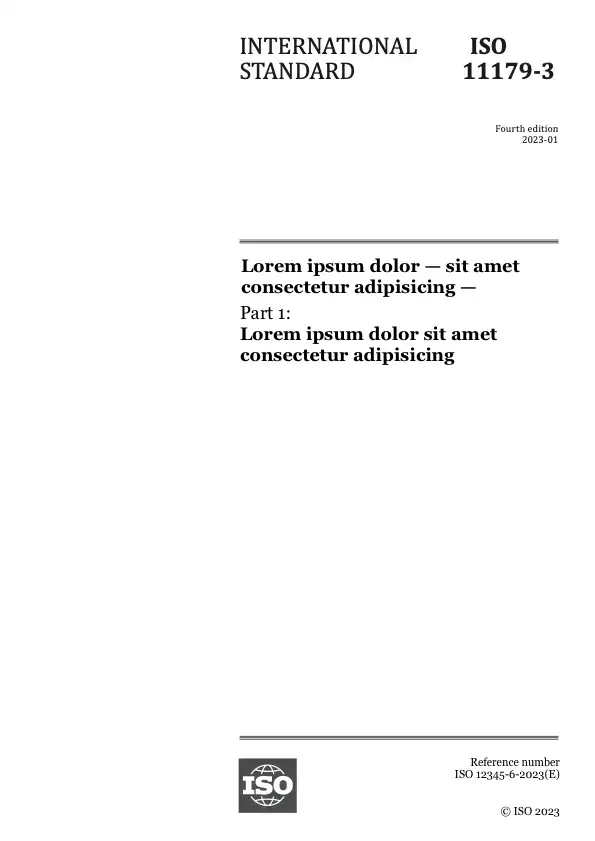Abstract
This International Standard describes a method for the measurement of the mass of particulate matter in ambient
air and is based on the absorption of beta rays by the particulate matter.
This method applies to the determination of concentrations ranging from a few micrograms per cubic metre to a few
milligrams per cubic metre contained in the atmospheres of urban, rural or industrial areas.
The lower mass detection limit of the method is usually 15 μg to 30 μg of deposited mass per square centimetre of
surface area, S, of the filter. This means, for a sampling time t of 3 h and a flowrate q of 1 m3/h, that the
concentration detection limit ranges between 5 μg/m3 and 10 μg/m3, computed as follows:
Sampling techniques are not included in the scope of this International Standard.
NOTE The concentration of particulate matter is calculated by dividing the mass deposited on a filter tape or individual
filter, by the known volume of air sampled. However, concentration is dependent on the sampling technique used, for example,
the design of the sampling inlet. Normally, for ambient-air particle sampling, large particles are filtered out by means of a sizeselective
inlet (for example cascade impactor or cyclone filtration). The particle size limit is defined by the characteristics of the
sampling head.
Read sample
General information
-
Status: PublishedPublication date: 2000-04Stage: International Standard confirmed [90.93]
-
Edition: 1Number of pages: 12
-
Technical Committee :ISO/TC 146/SC 3ICS :13.040.20
- RSS updates
Life cycle
Got a question?
Check out our FAQs
Opening hours:
Monday to Friday - 09:00-12:00, 14:00-17:00 (UTC+1)
